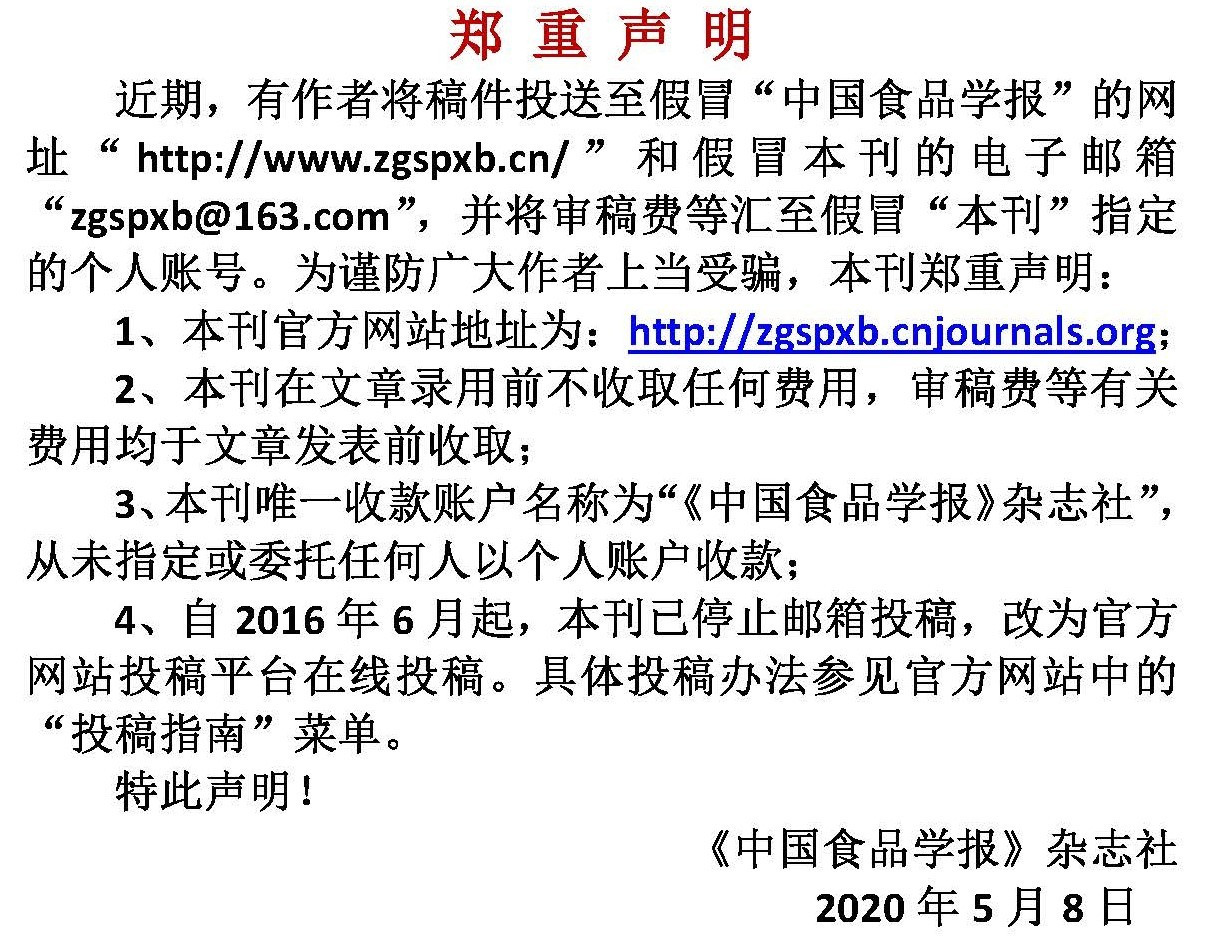牡丹籽中苦味成分的分离与鉴定
作者:
作者单位:
(华中农业大学食品科学技术学院 武汉 430070)
作者简介:
通讯作者:
中图分类号:
基金项目:
中央高校科研基础业务费(2662022SPPY001)
Isolation and Identification of Bitter Components in Peony Seeds
Author:
Affiliation:
(College of Food Science and Technology, Huazhong Agricultural University, Wuhan 430070)
Fund Project:
引用本文
曹康宁,彭帮柱.牡丹籽中苦味成分的分离与鉴定[J].中国食品学报,2023,23(6):294-303
复制分享
文章指标
- 点击次数:
- 下载次数:
- HTML阅读次数:
历史
- 收稿日期:2022-06-23
- 最后修改日期:
- 录用日期:
- 在线发布日期: 2023-08-17
- 出版日期:
文章二维码

版权所有 :《中国食品学报》杂志社 京ICP备09084417号-4
地址 :北京市海淀区阜成路北三街8号9层 邮政编码 :100048
电话 :010-65223596 65265375 电子邮箱 :chinaspxb@vip.163.com
技术支持:北京勤云科技发展有限公司
地址 :北京市海淀区阜成路北三街8号9层 邮政编码 :100048
电话 :010-65223596 65265375 电子邮箱 :chinaspxb@vip.163.com
技术支持:北京勤云科技发展有限公司
